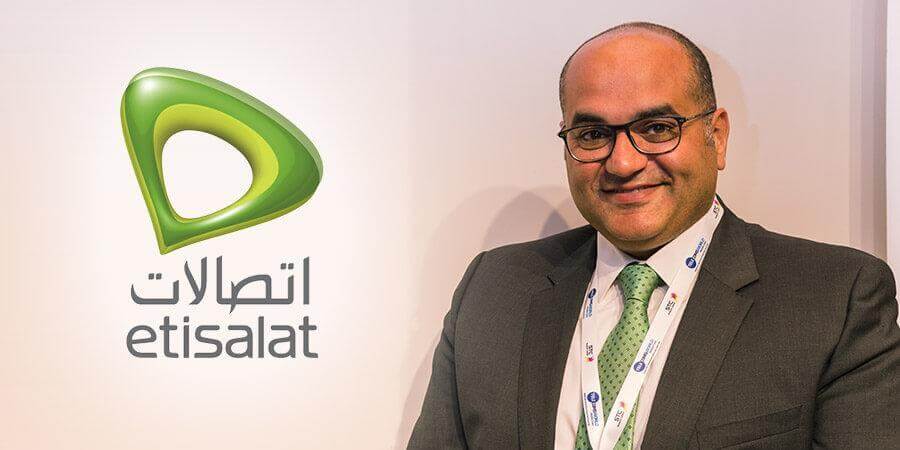Etisalat Egypt has a positive outlook despite fallout from liberalization of the Egyptian pound in 2016 - a move that saw its value reduced by almost 50 percent against the US dollar. Speaking to Telecom Review, Khaled Hegazy, Etisalat Egypt's Chief Corporate Affairs Officer, said the company's positive outlook is based on the size of the Egyptian market and the aspirations of youth.
Egypt's central bank floated the country's currency in November 2016 as part of a list of reforms designed to strengthen confidence in the African nation's economy. The move was a key requirement of the International Monetary Fund (IMF), from which Egypt had requested a $12 billion loan over three years, after it struggled to revive its economy following the 2011 Arab Spring.
The liberalization was intended to strengthen Egypt's economy and help foster growth, job creation and put the country in a better position, according to IMF's mission chief for Egypt Chris Jarvis. But it had a major impact on Egyptians who face higher costs of all imported goods. Utilities subsidies, for instance, were cut, so Egypt became a market with international cost structure but emerging market pricing.
"We buy the same equipment from the same manufacturers as any telecom operator in the world in foreign currency, so our costs have increased tremendously, which is the main challenge we are facing now in the industry in Egypt," Mr. Hegazy told Telecom Review. "Our costs have increased because of the liberalization of the economy so the foreign exchanges rates are realistic."
Despite the hardships, Etisalat Egypt remains positive because of its focus on youth and driving data usage by utilizing its new 4G spectrum. The operator, 66 percent owned by UAE-based Etisalat Group, placed a bid for 4G spectrum in October 2016 and can now put that spectrum to use. The 4G launch was delayed, however, but is expected to launch before the end of September 2017.
The launch of commercial 4G services will draw a line under a messy 4G auction process in Egypt. The first operators to sign deals with Egypt's regulator to acquire 4G licenses in October 2016 were Vodafone Egypt, Etisalat Egypt and Orange Egypt. Meanwhile, the nation's state-owned Telecom Egypt also plans to launch 4G.
Obtaining the licenses wasn't a straight forward process for the operators, with Vodafone Egypt, Etisalat Egypt and Orange Egypt at first rejecting the terms of the auction because they felt there wasn't enough sufficient spectrum on offer. The companies also disputed conditions which required 50 percent of the total license cost to be paid in US dollars.
The spectrum sales were delayed due to the telecom operators refusing to participate until the issue was sorted out. Orange Egypt, for example, came to an agreement with Egypt's regulator to pay half the license fee in US dollars.
Introducing 4G to Egypt has been part of the government's long-term plan to reform the telecom industry and raise more money for the state. After the spectrum auction, Egypt's Minister for ICT H.E. Yasser El Kady said $1.1 billion had been raised, and an additional $1.13 billion for the state budget.
There's been a lot of talk about pushing for digitization in Egypt, according to Mr. Hegazy. He believes Etisalat Egypt is positioned as an expert in the region because of the track record its parent company has in the UAE and elsewhere. "We're very eager to take a role in that," he said. "We have been presenting our models and our success stories in various forums. Nothing has been awarded yet, but we will be ready when it is."
Etisalat was the latest entrant to the mobile market in Egypt launching in 2007. In the ten years that the operator has been in the market, Etisalat Egypt has achieved great success for a new entrant by gaining more than 30 million subscribers, Mr. Hegazy said. Despite entering the market late into the game, Etisalat was able to hit the 1 million subscribers mark only 50 days after launching.
"The Etisalat brand in Egypt stands for youth and data," said Mr. Hegazy. "It's a progressive brand and we're always coming up with out-of-the-box solutions." Most of the innovation in the telecom market, he believes, is coming from Etisalat, which has "added a lot to Egypt in the last ten years."
According to data portal Index Mundi's 2017 Egypt Demographics Profile, youth (aged 0-24) represent 52 percent of the population, making it one of the most youthful populations in the world. The high youth population and the increasing size of the Egyptian economy put the country in a very competitive position in the region and the world, Mr. Hegazy said.
"Etisalat is a young brand in Egypt and we want to support the young progressive youth who are active in areas such as app development and other digital initiatives. Youth is key for us, and we have had this in mind since the beginning."






